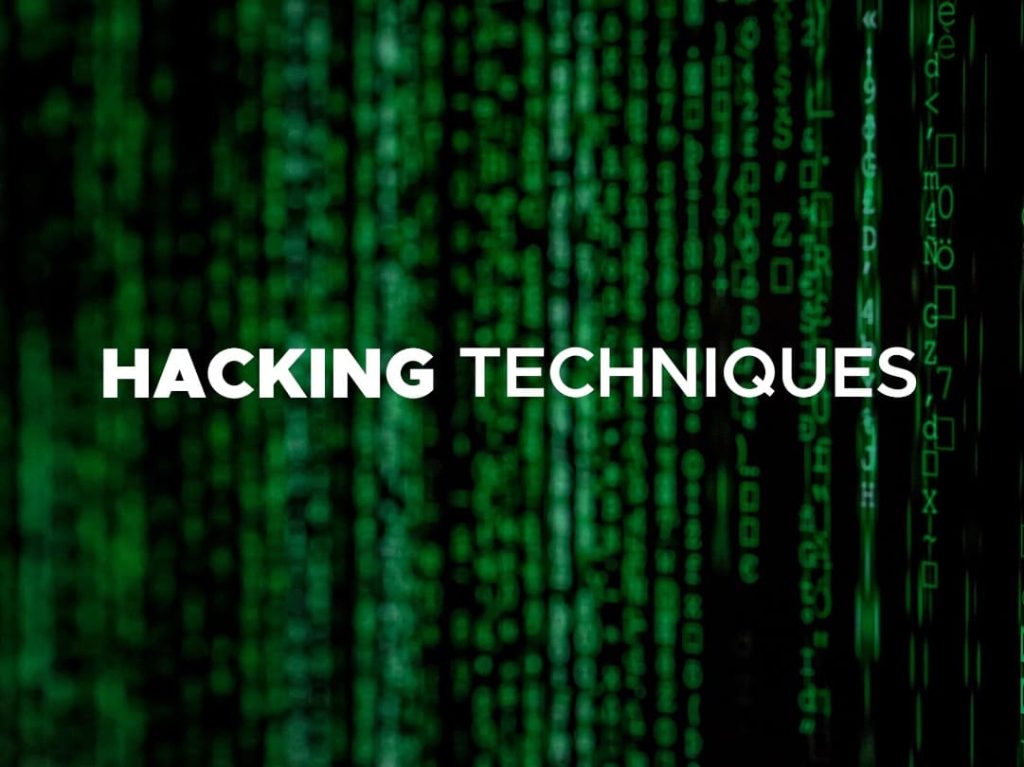You must have heard a term called ethical hacking somewhere on the internet. In this era of internet and changing technology, cybercrime is also increasing rapidly. With the use of computers and the Internet on a large scale, as much as the work of all of us is becoming easier, more problems are also arising at the same pace. Every now and then, we hear about incidents like website hacking, online frauds, scamming, etc.

Most of us already know the basic idea of what hacking is all about. But hacking is such a big topic that more deep you go into it, the more complex and dense it gets. There are so many things to explore in the world of hacking and alot are still unexplored and untouched. Hacking can divided into different parts based on the idea and motive behind doing it. One such category is called ethical hacking.
In this article, we will specifically talk about ethical hacking including what it is and how it is done. We will also discuss about ethical hackers and how you can be one. Later on, you will get to know the most popular and famous ethical hackers in the world and India. So by the end of this article, you will have complete knowledge of ethical hacking. Now without wasting any time, let’s get started!
Table of Contents
What is ethical hacking?
After hearing the term hacking, we all have this thought in our mind that it is related to some illegal activity. But in reality, hacking is such a skill that it is determined only on the basis of its use whether it is legal or illegal. If we talk about ethical hacking, it is made up of two words: ethical and hacking. The first word ethical means legal, so the meaning of this term is legal hacking.

In simple words, we can define ethical hacking as hacking in which the hacker is given legal permission by the owner to find vulnerabilities and security bugs in a system, website or app. Now you may have this question in your mind that what will be the benefit to the owner. The idea behind ethical hacking is to find out the security flaws so as to make the system more secure.
Before anyone else hack the website, the owner itself hire the ethical hackers to find and fix the potential flaws in the system. This helps in preventing the website from the attacks of other hackers. In return of finding vulnerabilities and bugs, ethical hackers are paid money as a reward from the company or owner. The amount is determined based on the intensity of the risks involved in the security bug.
Advantages of ethical hacking
Here are some of the advantages of ethical hacking –
- Finding security flaws in the system from the attacker’s perspective.
- Fixing bugs and vulnerabilities.
- Making the system more robust and secure.
- It helps to fight against cyberattacks.
- Better cybersecurity risk management.
- Protect the database and system from unauthorised access.
- You can perform penetration testing to check the strength of any computer or network security.
- It allows you to take adequate preventative measures to prevent security breaches.
- You can use ethical hacking to protect your computer from malicious hackers.
Types of ethical hacking
Ethical hacking can be applied on any computer system. Here we have listed them all –
- Web application hacking
- Social engineering
- Hacking wireless networks
- System hacking
- Web server hacking
Who is ethical hacker?
A person who does ethical hacking is called an ethical hacker. As simple as that! There are basically three different types of hackers namely white hat hacker, black hat hacker and gray hat hacker. Each type of hacker has different motive behind hacking. White hat hacker are known as the saviour who does hacking for good purposes. An ethical hacker also come under the white hat hacker category.

The main purpose of an ethical hacker is to find and fix the security flaws and potential vulnerabilities in the computer network, system, or application with the owner’s permission. On the other hand, the black hat hackers are the evil doer who does hacking for malicious intent. These two are just the opposite of each other. So basically, ethical hackers work to prevent black hat hackers from gaining unauthorised access to the system.
Best ethical hackers in India
Ethical hacker is a very renowned title which is given to a person only when he has done some extraordinary work in the field of hacking. You will be surprised to know that there are some Indian ethical hackers who have got their recognition not just in India but at global level. Below we have listed top 10 most famous ethical hackers in India who are expert in ethical hacking and cybersecurity –
- Ankit Fadia
- Vivek Ramachandran
- Sunny Vaghela
- Koushik Dutta
- Rahul Tyagi
- Trishneet Arora
- Sangeet Chopra
- Sai Sathish
- Falgun Rathod
- Aseen Jakhar
How to learn ethical hacking
Hacking is an art which can be only learned by practice. It is not something that you can learn overnight. You have improve your knowledge and skills in things related to computer and technology. There is no college degree required to be an ethical hacker. However, there are various ethical hacking courses available both offline and online which can help you get started with the basics of hacking techniques.
If you want to be an ethical hacker, you have to learn the basics of computer, programming and networking. All these things are interconnected with each other and the combination of them is what we see as the internet today. The way hackers think is quite different from the normal users. They always look for the security flaws in the system. You also have to build that perspective in your mind to be a successful ethical hacker.
If you are a beginner who wants to learn hacking, you should start by learning about computers, web servers, networking, internet, and programming languages as much as possible. Read books, find resources online, watch videos on YouTube, take ethical hacking courses and apply your knowledge practically. Once you clear your basics, you can move up to the advance level and learn more tricky hacking techniques.
Skills required to become an ethical hacker
To be expert in ethical hacking, you should have the following skills –
- Computer skills
- Networking concepts
- Linux skills
- Basic programming language
- Basic hardware knowledge
- Reverse engineering
- Cryptography skills
- Database management
- Problem solving skills
- Information security concept
Common hacking techniques

Here are some common hacking techniques that ethical hackers use –
- Sniffing – Sniffing is a process in which all the data packets that pass through a computer network are monitored and collected. Packet sniffers are used to perform the process of sniffing.
- Phishing – Phishing is a type of social engineering attack often used to steal user data including login credentials and credit card numbers. It occurs when an attacker, posing as a trusted entity, deceives a victim into opening an email or text message. The recipient is then prompted to click on a malicious link, which could lead to the installation of malware, freezing the system as part of a ransomware attack, or stealing sensitive information.
- Social engineering – It is the art of exploiting the human elements to gain access to un-authorized resources and other confidential information of an organisation. Social engineering has become a very popular and effective strategy for testing how vulnerable an organization really is.
- SQL Injection – SQL injection is a hacking technique in which the hacker uses malicious code to hack the database of a website or web application in order to access, modify, steal or delete the data.
- Session hijacking – In this hacking technique, the hacker aims to steal cookies and hijack sessions from the victim’s browser in order to gain access to his web accounts.
- Footprinting – Footprinting is an ethical hacking technique used to gather information about a targeted computer system or network in order to identify security bugs and vulnerabilities.
- Enumeration – This is a process where the hacker builds an active connection with the victim’s device and then try to discover more information and vulnerabilities that could be used to exploit the system further.
- Cryptography – Cryptography is used to encrypt and decrypt the data from plain text into cipher codes so as to prevent it from unauthorised access. In this hacking technique, the ethical hacker tries to find some way to decode the cipher text and gain access to the actual information.
Apart from these, there are many other hacking techniques. If you want to learn ethical hacking, you should have knowledge of all these techniques. For more detailed information, you can search individual topics on the internet.
Frequently asked questions
Yes, ethical hacking is a good career but it requires you to build great skills if you want to be successful in this field. There is not much support available for hacking so you have to do everything yourself and make your own strategies.
The average salary of an ethical hacker is around ₹50,000/month. This can vary depending on the skills and past achievements of the ethical hacker. Some top elite and experienced hackers are also earning in 6 to 7 figures.
There isn’t any particular language that is used in hacking. A good hacker knows almost all programming languages. Some of the popular and most used ones are Python, JavaScript, SQL, PHP, C/C++, etc.
Conclusion
Hacking is a very fascinating subject and there is no limit on how much you can explore it. We hope this article has cleared all the basic concepts of ethical hacking. Let us know why you want to learn hacking and what type of hacker do you want to become. What are your views on ethical hackers? If you have any questions in your mind, feel free to share them in the comments below. You can also check out other interesting articles on our website.



![Top 10 Most Famous Hackers in India [2022]](https://www.geekinstructor.com/wp-content/uploads/2022/03/top-10-indian-hackers-300x168.jpeg)
